30 December 2010
Again, it was cold in the morning; and I was shivering as I waited for the hot water to be delivered and hoisted in the plastic bag that fed the shower. The sky was clear as we exited the tent and watched the sun rise over the Nogorongoro Conservation Area and the Ndutu Region.
Unfortunately, Nick was still not feeling well and did not want to have any breakfast nor get out of bed. We had planned to leave at 08:00, but needed to wait about an hour until Nick felt strong enough to get up and join us in the car. Ray made a bed for him in the back of the car and tried to make him as comfortable as possible despite the rutted and bumpy roads we would be traversing.
On this morning we drove from the eastern edge of the Nogorongoro Conservation Area through the southern Serengeti to the central part, where we had a picnic lunch at a designated (i.e., safe) area.
On the way, we saw a leopard in a “sausage” tree and watched it leap out and into the grass near a marsh.
We also saw countless wildebeest, zebras, giraffes, Thomson gazelles, Grant gazelles and impalas.
In addition, we saw a total of four lions, but they again were only sleeping in the shade, apparently resting from a busy night. Ray told us that lions only need to eat about every 4-6 days, so when they are not hungry and do not need to hunt, they just sleep. He mentioned that he very rarely sees lions hunting – maybe one time in thirty outings. He related an incident he was once witness to where an entire pride of lions took down a buffalo: the entire process took an hour; and it was very dangerous for the lions, as the buffalo could easily have killed one of them with a kick or a joust from its horns. The highlight of our morning, however, was our first sighting of hyenas: we saw two different species – one spotted and the other, well, unspotted…
On the way through the western Serengeti (which comes from the Maasai word for “endless open spaces”), we went to the Hippo pool and saw at least three dozen massive specimens rolling, lumbering, defecating and displaying in the water. It was mid-afternoon and too hot for them to be out grazing. A little known fact is that Hippos are the land animals most closely related to whales. They are definitely more aquatic than land-dwelling (from what I could see during the trip); and if they could find a way to nourish themselves in the water (they need to go on land to graze), they might never get out. The hippo pool was supposed to harbor a number of crocodiles, as well, but we didn’t see any. In fact, we didn’t see a single croc during the entire trip.
We departed from here and headed toward our next camp, the Mapito Tented Camp complex outside the Ikoma gate in the western Serengeti.
This was a very nice and comfortable place with spacious tents, a permanent shower facility out back of the tents (walled in, but actually under the open sky) and nice African decoration. The manager of the camp is a very friendly and colorful Viennese by the name of Hannes. He left Vienna back in 2004 and has been working in various hotels across East Africa ever since. His original background is IT, so we had some topics to discuss in this area. He lives at the camp with his Kenyan wife (Anita); and the couple has two daughters who are currently at boarding school in Mwanza.
By the evening, Nick was feeling better and decided to have dinner with us. We all went out to the campfire after dinner and spent some time talking with Hannes and the Finnish couple also staying at the campsite. One of the camp’s employees stood guard with bow and arrow; and we learned that the weapons were not mere decoration and that the tips of some of the arrows had been dipped in poison from the Candelabra tree. So far, the guards have needed to use the arrows twice – once when a hyena got too close, and once when a lion came roaming through the camp. Hannes also told us the story of how he ended up in East Africa. He had been a software engineer at Kapsch, grew to hate the cold Austrian winters while simultaneously learning to love the climate in Mombasa, got an offer to take on a role as IT coordinator for a hotel in Mombasa, spent three years there until the hotel went bankrupt, was forced to look for another job and ultimately ended up at Mapito.
Tags: Travel

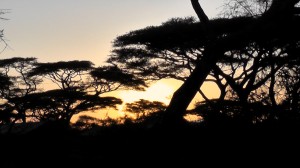
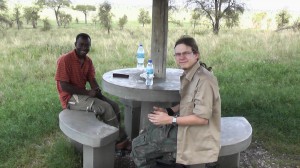
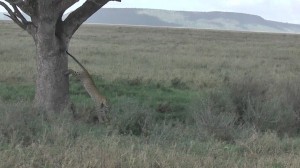
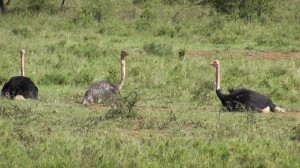
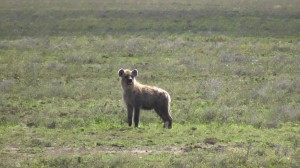
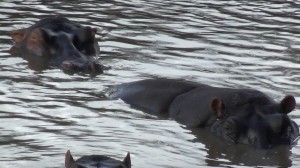
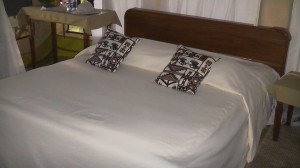
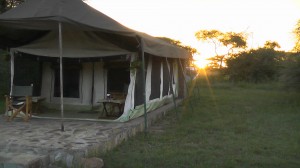
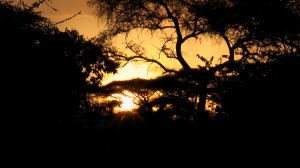
January 26th, 2011 at 5:54 pm
Glad you enjoyed it. This trip is unfortunately over, so I will not be adding anything new to this blog. But there will be more trips in the future.